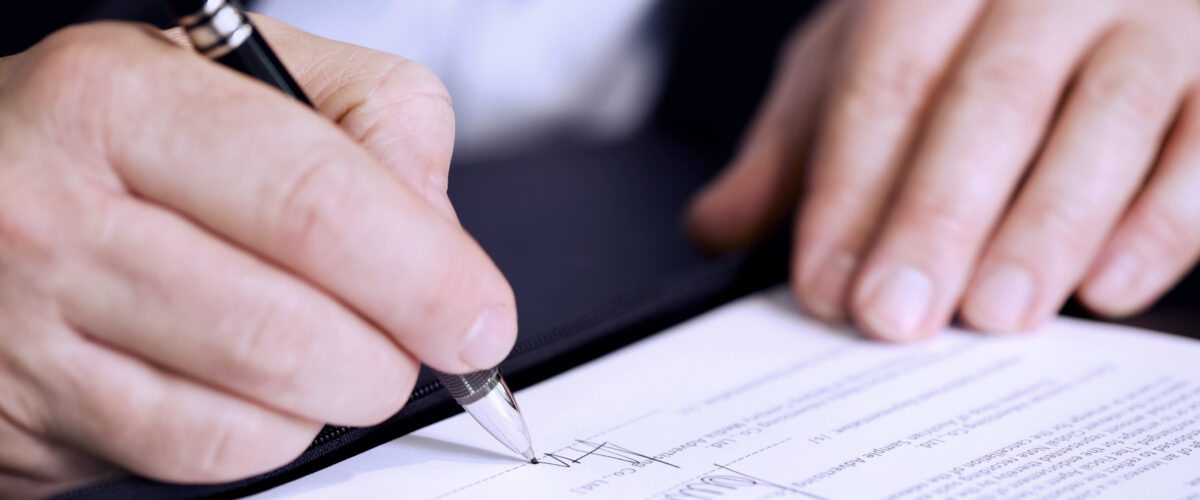article | 21 Nov 2017
Are you personally liable for your company’s IP infringement? – the Swedish Patent and Market Court rules on IP infringement and lifting the corporate veil

Managing product portfolios, risks and assertive commercial IP prosecution is challenging for companies and individuals operating on IP-heavy Swedish markets. Business decision makers face rapid developments in technology, market shifts and IP law developments on the Swedish, European and international level.
In a sudden, radical new development, the Swedish Patent and Market Court has pronounced a judgment setting a precedent on the personal liability of company representatives for patent infringement committed by companies (judgment of the 26th of October 2017, case no. PMT 11574-16), potentially lifting the corporate veil. Specifically, a shareholder and board member of a limited liability company was held personally liable for participation in patent infringement measures committed by the company. The board member was also subject to a prohibition under penalty of a fine as well as ordered to pay damages to the rights holder, jointly and severally with the patent infringing company.
Companies and individuals operating on IP-heavy Swedish markets would do well to study the judgment, as the outcome might entail huge implications for commercial IP prosecution and risk management of companies and individuals operating in Swedish IP environments.
Background to the court’s conclusions on personal liability
The plaintiff, referred to as Power Tools, held a license on two Swedish patents and sued two companies, of which one was the defendant referred to as Royex, on the grounds that the companies had committed direct or indirect patent infringement by selling a product on the Swedish market.
Power Tools also sued a shareholder, managing director and chairman of the board of Royex, the defendant referred to as Mats A, on the grounds that his influence on Royex constituted either a personal liability for Royex’s infringement or a personal liability for participation in Royex’s infringement. Power Tools’ claims included prohibition under penalty of a fine as well as damages.
Briefly summarized, the Court concluded that Royex had, directly and indirectly, infringed one of the patents by using, marketing and selling the product concerned.
The personal liability of a company representative for patent infringement committed by the company
The Court first turned to the matter of whether owning shares in or being a company representative of a company, which has infringed patent rights, in itself creates personal liability for the company’s patent infringement.
Power Tools argued that Mats A, in his capacity as majority shareholder, chairman of the board and managing director, had controlling influence over Royex. The company’s patent infringement was a direct consequence of Mats A’s decisions, Power Tools argued, and he was thus personally liable for Royex’s patent infringement.
The Court concluded that Swedish law did not support the claim that Mats A’s positions as a shareholder or company representative in itself constituted grounds for personal liability for patent infringement committed by the company.
Rather, the deciding factor was whether a shareholder or company representative had personally taken any specific measures in relation to the infringement of the patent. The Court held that Mats A’s decisions in his capacity of company representative had resulted in Royex committing (indirect) patent infringement. By participating in decisions resulting in Royex marketing and selling the infringing product, Mats A had furthered Royex’s infringement and was thus liable to participation in Royex’s infringement. Whether Mats A had made the decisions himself or jointly with other shareholders did not matter. The Court also ruled, in accordance with Power Tools’ claim, that Mats A’s participation in Royex’s infringement warranted a separate prohibition under penalty of a fine.
Power Tools had also claimed that Mats A should be ordered to pay damages. In this regard, the Court initially noted that no explicit provisions of Swedish law concerned damages for participation in patent infringement. Despite this fact, and with reference to general principles of Swedish tort law, the Court ordered Mats A to (jointly and severally with Royex) pay compensation to Power Tools for use of the invention as well as for the additional loss resulting from the infringement. The Court considered that business operators such as Mats A had a duty to be informed on patent rights in the technical field of Royex’s operations. By participating in decisions resulting in Royex’s patent infringement, the Court held that Mats A had been negligent and thus was liable to pay compensation to Power Tools.
Concluding remarks
The Swedish Patent and Market Court judgment raises an array of questions and potentially huge implications for companies and individuals operating in Swedish IP environments. Is the Swedish Patent and Market Court setting out a Swedish IP law principle of lifting the corporate veil? Can businesses no longer confine IP risks to specific legal persons? Are company representatives and shareholders from now on legitimate targets for commercial IP prosecution? Are other important decision makers, or even parent companies, exposed in a similar manner?
Given the commercial value of IP rights with large-scale industrial application, particularly patent rights, the judgment might entail potentially staggering financial implications for individuals in executive positions.
Although the judgment does signal a clear position by the Swedish Patent and Market Court, it has been appeal to the Patent and Market Court of Appeal. Companies and individuals operating in Swedish IP environments would do well to monitor the appeal process.
Contact:
Practice areas:


